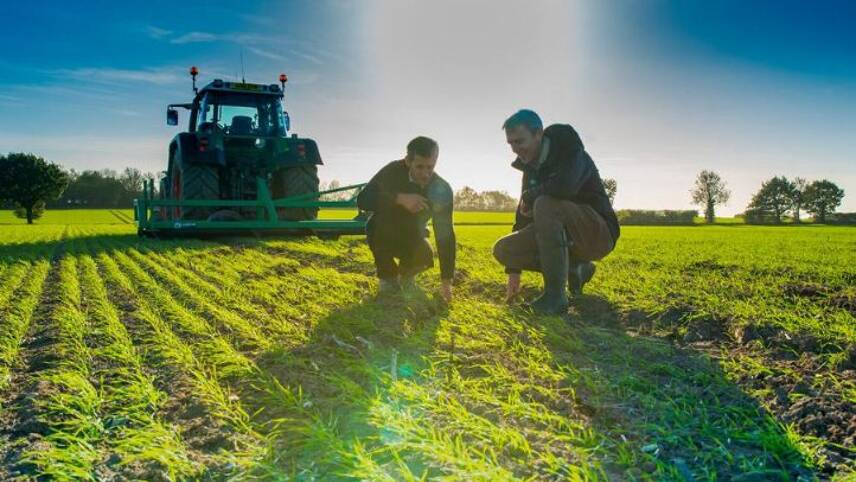Register for free and continue reading
Join our growing army of changemakers and get unlimited access to our premium content

Image: Tesco and WWF
Tesco has this week announced that it is partnering with five of its largest field vegetable suppliers to create a commercial roll-out of low-carbon fertiliser.
The retailer has highlighted eight low-carbon fertiliser options that will be used across 1,300 hectares during the 2023 growing season. Tesco claims this will be scaled up to 4,000 hectares by 2024, with emissions expected to be reduced by 20% in the first year alone.
The UK currently imports around 60% of its fertiliser needs, but closures of chemical plants and shortages caused by the war in Ukraine have seen costs rise by as much as 140% over the last year.
Tesco has confirmed that six of the eight fertiliser producers will be manufacturing their products in the UK from materials including food waste, chicken litter, fire extinguisher waste and algae.
Tesco will also expand the use of low-carbon alternatives to other product areas. Produce such as wheat and barley, where fertiliser usage accounts for more than 60% of emissions, as well as grasslands for beef, dairy and lamb have been earmarked for trial runs.
The first year of the roll-out will produce up to 70,000 tonnes of fresh produce, growing to 200,000 tonnes in 2024.
Tesco’s group quality director Sarah Bradbury said: “Delivering more affordable, sustainable food means finding innovative, new ways to grow basket staples like potatoes, salad vegetables and carrots. Fertilisers are a large source of emissions in farming, but high prices and uncertainty have made it hard for farmers to take advantage of low-carbon alternatives.
“We hope that by working with our suppliers, our learnings from this roll-out of low carbon fertilisers can prove their potential to cut emissions and demonstrate what it would take to scale up production in the UK. It’s vital we keep costs manageable for farmers facing the most challenging market conditions in a generation and help our customers to eat in a way that’s good for planet and pocket.”
Tesco announced that low-carbon fertiliser would be one of the innovations they would trial across the supply chain last year.
As part of its partnership with WWF, Tesco launched a programme in 2022 enabling cleantech start-ups to trial their technologies and processes at the retailer’s major produce, meat, fish and dairy suppliers.
Fertiliser producer CCm was one of the winners of that innovation programme. Elsewhere, Crop Intellect, which makes the R-leaf product, won Tesco’s Agri T-Jam competition in 2021, along with a chance to partner with Tesco suppliers and road-test its technology.
The overarching goal of Tesco and WWF’s partnership is to halve the environmental impact of the average UK shopping basket by 2030, compared with a 2019 baseline. Four other supermarkets signed on to that commitment at COP26. Impact is measured on a life-cycle basis and the methodology includes information relating to emissions, deforestation, food waste and packaging waste. The wider role that supply chains have to play in promoting sustainable food systems and more sustainable diets are also considered.
Tesco is aiming to deliver a net-zero supply chain by 2050, building on a commitment to reach net-zero operational emissions by 2035 and to cut supplier emissions by 35% within the same timeframe.


Please login or Register to leave a comment.